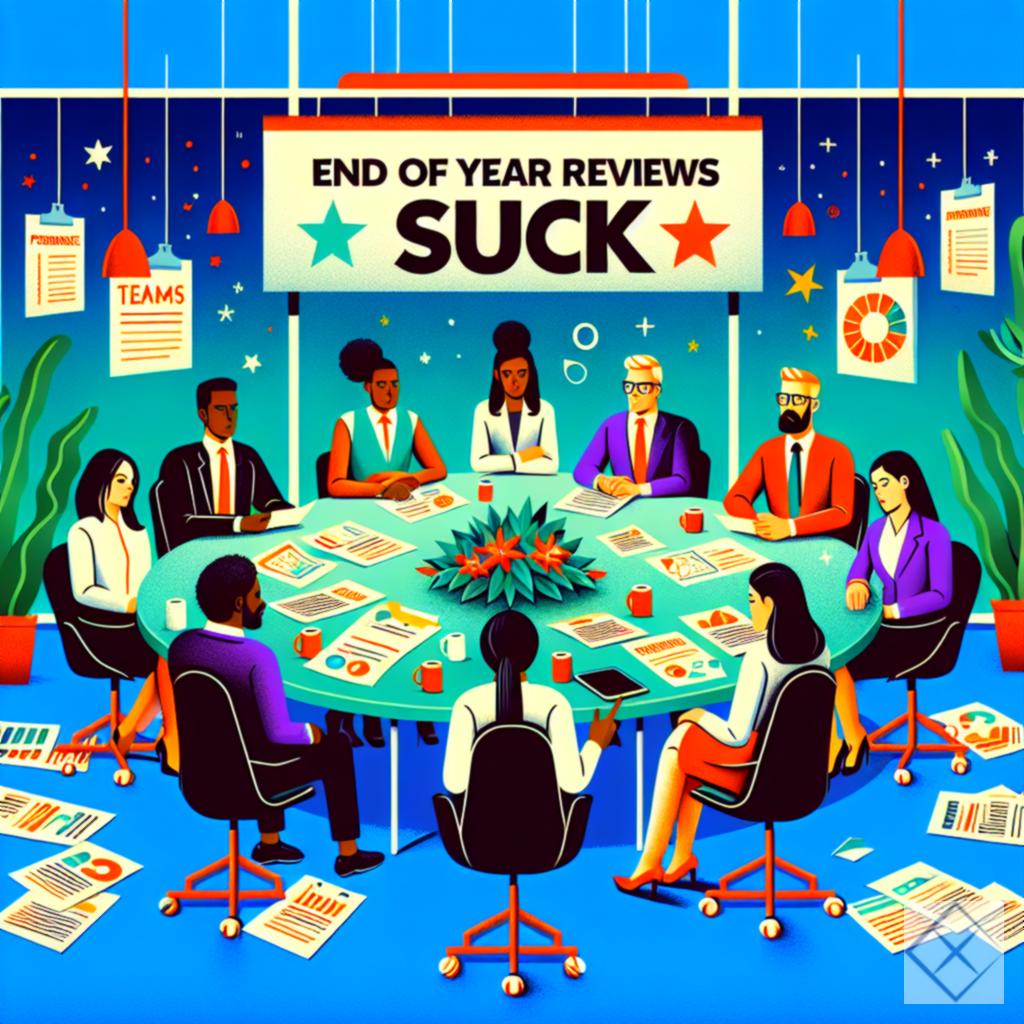End of year reviews suck

End of Year Reviews Suck
Year-end performance reviews often bring a wave of anxiety, frustration, and, frankly, disappointment for both managers and their teams. It’s a time when we’re expected to be critical of our high-performing teams, often leading to a disconnect between actual performance and the ratings being assigned.
In this post, we’ll delve into the challenges of the traditional review process and explore some potential solutions to improve the experience for everyone involved.
The Corporate Dilemma
As one commenter aptly put it, “a lot of engineers build SaaS on the side and spend an unhealthy amount of time in front of a computer screen” because they’re fed up with the corporate environment. This sentiment resonates strongly in a landscape where hard work and dedication do not always translate into recognition or reward.
The Challenge of High Performers
It’s particularly disheartening when managers are instructed to rate their team members down, despite their stellar performances. Many leaders find themselves in an impossible position—how do you justify lower ratings for individuals who consistently go above and beyond?
Another commenter highlighted the compounded frustration when these high performers are denied promotions or raises they rightfully deserve. The weight of these decisions can be tremendous, especially when a manager feels the pressure of layoffs looming over them.
The Reality of Layoffs
The stark reality is that individuals who have done nothing wrong may find themselves on the chopping block, simply because their performance doesn’t align with arbitrary corporate metrics or stock price pressures. This leads to a culture of fear and mistrust, where employees are left questioning their value and contribution to the team.
A Path Forward: Hacking Performance Reviews
Despite these challenges, there are ways to navigate the performance review process more effectively. One such approach is prioritization, as mentioned in a comment. By focusing on what truly matters and aligning performance metrics with team goals, managers can provide a more accurate assessment of their team’s contributions.
Here are some strategies to consider:
-
Set Clear Expectations: At the beginning of the review period, ensure that all team members understand the performance criteria and how they will be evaluated. This transparency can foster trust and reduce anxiety.
-
Focus on Development: Shift the focus from punitive ratings to constructive feedback. Encourage a growth mindset where the review process becomes a tool for development rather than a source of stress.
-
Recognize Contributions: Instead of solely focusing on ratings, make an effort to highlight individual contributions in meetings or company communications. Recognition can go a long way in motivating high performers.
-
Advocate for Your Team: As a manager, be a vocal advocate for your team. If you believe they deserve raises or promotions, present evidence and make a case to upper management.
-
Explore Alternative Models: Consider adopting continuous feedback models or 360-degree reviews that allow for a more holistic view of performance throughout the year.
Conclusion
End-of-year reviews don’t have to suck. While the system may not be perfect, managers have the power to change the narrative within their teams. By prioritizing open communication, fostering a culture of recognition, and advocating for team members, we can transform the review process into a more positive and constructive experience.
If you’re interested in further exploring how to elevate your performance review process, consider reaching out to resources like leaderhub.io for additional insights.
Let’s start a dialogue about how we can collectively improve this experience for everyone involved. Share your thoughts and experiences in the comments below!
Transform your performance reviews! Schedule a 1-on-1 coaching session today and empower your team for success.
Related Posts
- What is your process of year-end merit increases / promotions
- What is your process of year-end merit increases / promotions?
- How is Google using Machine Learning to automate comment resolution in code reviews
- Why TF did my company switch to TypeScript for backend work from C#
- Got an offer from Apple - SWE New Grad (US)